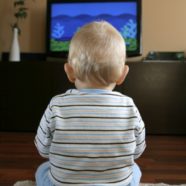
The importance of every couples’ preparation before conception
Although the early years of life are critical to brain development, brain health starts in-utero and is significantly affected by the mother’s health, as well as the father’s age (children of men older than 50 are significantly more likely to have autism).
To maximize a baby’s brain power, both parents should start with the preparation phase of our fertility program before the baby has even been conceived. These include stabilizing blood sugar, eliminating foods that cause inflammation, detoxification, balancing hormones (adrenal, thyroid, and sex hormones), as well as repair the gut, which is the seat of the immune system. The health of the mother’s immune system, hormone health, as well as lifestyle significantly impact the development of the baby’s brain.
Using TV and videos to take a break?
Popping in a DVD for a baby or toddler can provide a brief break for the hurried parent, and playing an “educational” video is an attempt to reduce the guilt of using screen time as a means to accomplish that. Unfortunately, even an educational video featuring classical music, shapes, colors, and early words may do more harm than good according to some researchers. A child’s brain needs constant physical activity and interaction with the environment to develop properly. Even if it’s an “educational” video or a computer game, time in front of the screen suspends that development.
Research shows the younger a child begins spending time in front of the screen, the lower they score on language tests, despite being taught language on educational videos or television. Unfortunately, almost 90 percent of children spend two to three hours per day in front of a screen by the time they are two years old.
Although watching educational TV or videos won’t necessarily cause a brain development disorder, researchers suggest that it can delay the development of crucial wiring and even delay language development.
Alternatives to TV and videos
Physical activity and healthy interaction (i.e. play) with the environment are the most vital aspects to a properly developing brain. Babies and toddlers do not need traditional education on TV and videos. Simply becoming part of the world around them is highly educational for them. Ample access to physical movement appropriate for the child’s age (i.e. do not put a child who should be learning to crawl in a walker or leave her strapped in a car seat for much of the day) is vital for proper brain growth, as is playing with age-appropriate toys, loving interaction and touch from caregivers, the ability to safely observe and explore his world, and protection from overstimulation.


